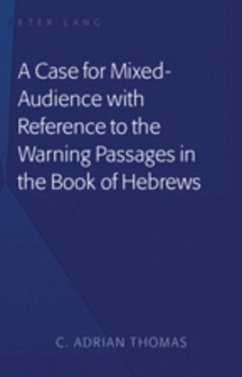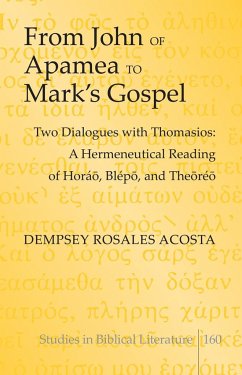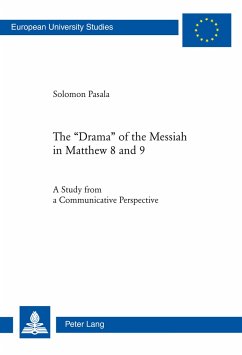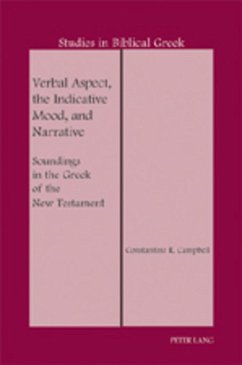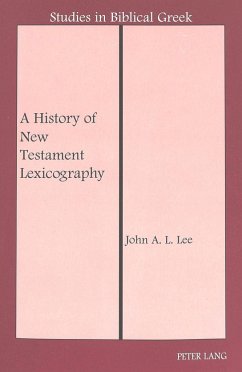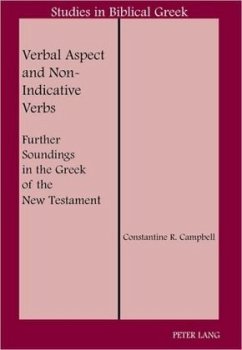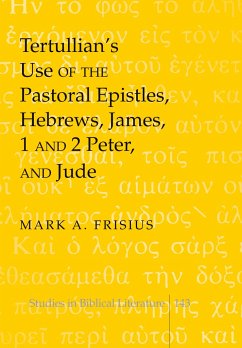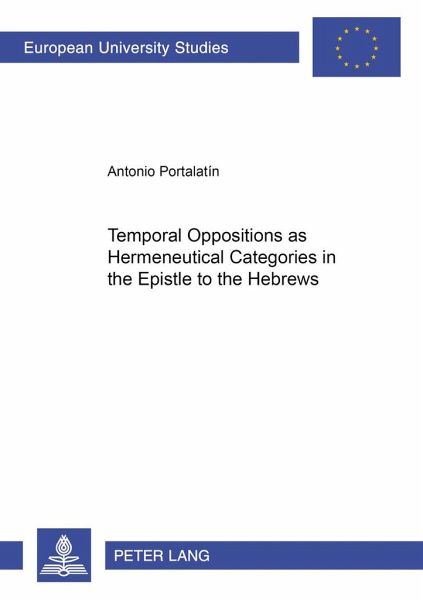
Temporal Oppositions as Hermeneutical Categories in the Epistle to the Hebrews
Versandkostenfrei!
Versandfertig in 6-10 Tagen
94,35 €
inkl. MwSt.

PAYBACK Punkte
0 °P sammeln!
This study develops the thesis that the Epistle to the Hebrews uses temporal oppositions as an important literary and theological device within its discourse. It provides a detailed analysis on the lexical field of time and the temporal lines of sense in the Epistle. In addition to the traditional historical-literary methods, the author applies elements from modern linguistics, reader-response theory, and hermeneutics. By using temporal contrasts, this Epistle obtains a clear delineation of the present eschatological status of the Christian community, and creates a forceful exhortation to live...
This study develops the thesis that the Epistle to the Hebrews uses temporal oppositions as an important literary and theological device within its discourse. It provides a detailed analysis on the lexical field of time and the temporal lines of sense in the Epistle. In addition to the traditional historical-literary methods, the author applies elements from modern linguistics, reader-response theory, and hermeneutics. By using temporal contrasts, this Epistle obtains a clear delineation of the present eschatological status of the Christian community, and creates a forceful exhortation to live according to our stance in history.



